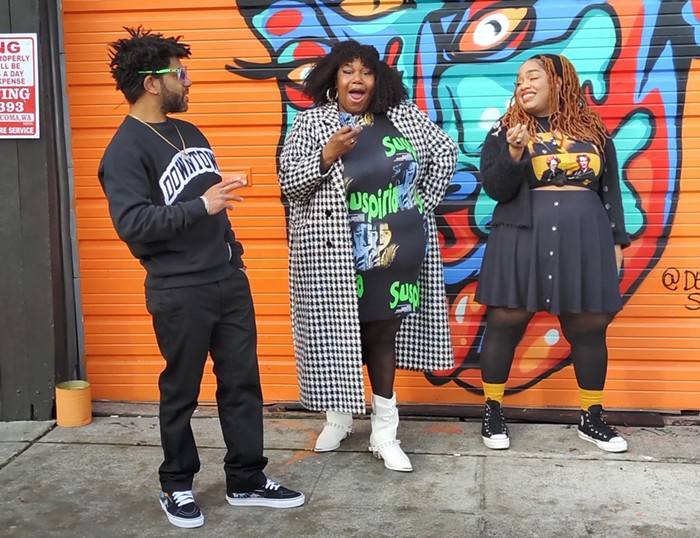
Good news on pot at the federal level: our favorite "mom in tennis shoes," Sen. Patty Murray (D-WA), is at it again, grinding the idiocy of our nation's drug policy to a pulp beneath the heels of her Asics. Murray, the top Democrat on the Senate's committee on health, along with Sen. Kirsten Gillibrand (D-NY), drafted a letter to Obama, urging action from the administration—specifically the DEA—on medical cannabis. The letter, which was signed by twenty four other senators and representatives and sent out last Friday, urged the DEA to give fair consideration to cannabis' status under the Controlled Substances Act (CSA) and open the door to more pot research, two things it's been shamefully averse to doing. The letter takes the DEA to task for years of hypocritical, back-asswards cannabis policy and the resulting dearth of useful scientific research on the subject.
You can read the letter (and see who else signed it) here.
In addition to pointing out basic hypocrisies—"The Controlled Substances Act of 1970 classified cannabis as a Schedule I substance, reserved for drugs with 'no currently accepted medical use,' without citing any scientific evaluation of its medical use"—the letter documents the Drug Enforcement Agency's (DEA) history of blowing it on pot in masterful detail.
The first section is dedicated to rescheduling, specifically to ensuring that future considerations of cannabis' scheduling level under the CSA are conducted openly and based on science, not bullshit. The DEA recently announced that it would reconsider the scheduling of cannabis within the first half of 2016, though it didn't say whether it would actually make a decision. As the letter notes, the DEA has been urged to reconsider cannabis' Schedule I status multiple times, with the first petition arriving in 1972. Somehow, despite DEA Chief Administrative Law Judge Francis Young recommending pot be rescheduled in 1988, that first petition and all subsequent ones were rejected. The most recent one, from former governors Christine Gregoire of Washington and Lincoln Chafee of Rhode Island, has been left in limbo.
Murray and Co. ain't havin' no more of that. The section concludes that the DEA has a transparency problem, and urges that "public hearings also be held to allow researchers, doctors, and patients an opportunity to inform this decision in an open, transparent manner." Amen!
Having dropped the mic on the rescheduling issue, the letter picks it back up to point out the biggest hypocrisy of all: The only institution allowed to perform research on cannabis at the federal level is the National Institute on Drug Abuse, whose stance on cannabis is not exactly neutral. To wit, their fact sheet on the topic asks, "How Does Marijuana Affect a User's Life?" Their answer: "lower life satisfaction, poorer mental health, poorer physical health, [and] more relationship problems." Confirmation bias, much?
These are the people whom the government has tasked with conducting objective scientific research on cannabis, the holders of the only federal research license to be granted by the DEA. The NIDA contracts with the University of Mississipi to grow a supply of cannabis for research. It is notoriously shitty cannabis and, by the NIDA director's own admission, insufficient to conduct meaningful medical research.
"NIDA Director Dr. Nora Volkow testified before Congress in June 2015 that there is 'no scientific reason' for the monopoly, that it 'is not something NIDA chose to do,' and that without it, 'efficiency, effectiveness, availability for research would be better,'" says the letter. It also says this is clearly the DEA's fault, noting that the DEA, in 2009, overruled a 2007 recommendation from a DEA administrative law judge that additional research licenses be granted.
In perhaps my favorite bit of truth-spitting, the letter takes the DEA to task for its downright Orwellian reasoning on pot. "Among its justifications for refusing to grant additional licenses," it reads, "the DEA has cited that cannabis has 'no currently accepted medical use,' as indicated by the drug’s Schedule I status. However, researchers will never be able to demonstrate 'accepted medical use' to DEA standards without a sufficient drug supply, hence creating a chicken-and-egg scenario." Everyone knows it, the head of the Senate's committee on health just said it. Booya.
This is just part of the good news. The senate recently passed an amendment to the Military Contruction funding bill that would allow Veterans Administration doctors the same freedom to recommend medical cannabis that regular doctors enjoy. Murray, unsurprisingly, was on board with that too. Improving access to medical cannabis for veterans is a hugely important, crisis-level issue. Twenty-two veterans commit suicide a day, on average, and medical cannabis is a hugely promising treatment for PTSD. Veterans across the country say unequivocally that it has saved their lives. I talked to three veterans with PTSD who use cannabis here.
“I’m constantly fighting to make sure veterans have access to the treatment options they need to address their medical conditions," she said in a statement, "and medical marijuana should be no different."
Taken together, these two recent congressional moves represent increasingly vocal support for medical marijuana at the federal level. At least twenty-five elected officials, including Sen. Rand Paul, are on record urging the DEA to make the right call. The letter notes that the Obama administration can make good on the two recommendations it contains—conducting a transparent, science-based review of cannabis scheduling and offering more cannabis research licenses—right now. No legislation is needed.
"Until we have comprehensive scientific research on the medical risks and benefits of cannabis and its derivatives," it concludes, "we will continue to debate this issue on the basis of outdated ideology instead of modern science."















